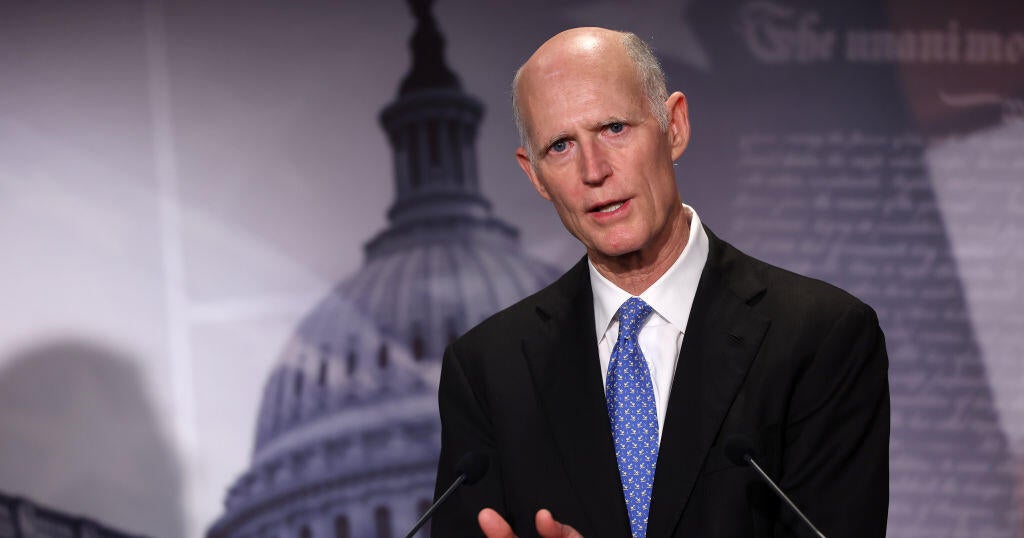Defense Secretary nominee vows to root out enemies who "lie within our own ranks"
General Lloyd Austin, President-elect Joe Biden's nominee to be defense secretary, testified Tuesday before the Senate Armed Services Committee on the eve of Mr. Biden's inauguration. If confirmed by the Senate, Austin will be the first Black man to lead the Pentagon.
Austin said Tuesday that he has "confidence" in the National Guard soldiers deployed to Washington, D.C., after two were removed from inauguration duty due to possible ties to extremism. Another 10 were removed due to red flags in their background checks that were unrelated to national security.
"I think the Secret Service is in charge of the overall effort," Austin said. "I have every reason to believe they will do a very credible job and provide for our security. I have confidence in our Guard. The fact that we are screening people and making sure that we don't have the wrong kinds of people in the formation I think is a credit to their efforts."
Austin did not directly address the arrests of U.S. service members in connection to the assault on the Capitol in his opening remarks, but he did say, "the job of the Department of Defense is to keep America safe from our enemies. But we can't do that if some of those enemies lie within our own ranks."
He was questioned on the topic by Senator Richard Blumenthal, who has called for an investigation into white supremacy and extremism in the military. Austin related a personal story from his time in the 82nd Airborne Division, recalling that "extremist elements" had been found in its ranks.
"We discovered that the signs for that activity were there all along, but we just didn't know what to look for or what to pay attention to, but we learned from that," Austin said. "And I think this is one of those things that it's important to our military that we keep a handle on, that our leaders are doing the right thing, they're taking care of their troops, they understand, they know their troops, and we can never take our hands off the wheel on this."
In his opening remarks, Austin said he was a "general and a soldier" but said "I am prepared to serve now — as a civilian — fully acknowledging the importance of this distinction."
Since Austin, a four-star general with four decades of service in the Army, retired from military service only four years ago, he will need a waiver from both the Senate and the House to enter the Cabinet. Senator Tom Cotton said on Tuesday that he would vote against the waiver. Cotton said he regretted voting in favor of a waiver to approve James Mattis in 2017.
The House Armed Services Committee, meanwhile, on Tuesday canceled the scheduled January 21 hearing on the waiver because the members of the committee have not yet been set. The full House is still scheduled to vote on the waiver on Thursday.
Congressman Adam Schiff on Monday sent a letter to House Democrats urging them to approve Austin's waiver, saying it would be a "grave mistake" if they don't.
Federal law states that a member of the military can't serve as secretary of defense within seven years of retirement from service, in order to ensure civilian control of the Pentagon. Only two other secretaries have received the waiver: General George Marshall in 1950 during the Truman administration and General James Mattis in 2017.
On Tuesday, Austin vowed to "fight hard to stamp out sexual assault, to rid our ranks of racists and extremists, and to create a climate where everyone fit and willing has the opportunity to serve this country with dignity."
Austin will testify on the Hill at a time when the building is fortified by thousands of National Guard members and as questions involving the armed services following the assault on the Capitol continue to be raised. Following the unrest, the Joint Chiefs of Staff issued an extraordinary letter reminding service members that the military's role is to support a peaceful transfer of power.
Until Austin is confirmed, David Norquist who has been the deputy Secretary of Defense in the Trump administration since July 2019, will be the acting secretary in the Biden administration.
Without an impeachment, the number of days between a confirmation hearing and a confirmation vote for a Secretary of Defense in 2017 was eight days. An impending Senate impeachment trial could mean Mr. Biden might have to wait longer to have his chosen department leaders in key areas in place.





